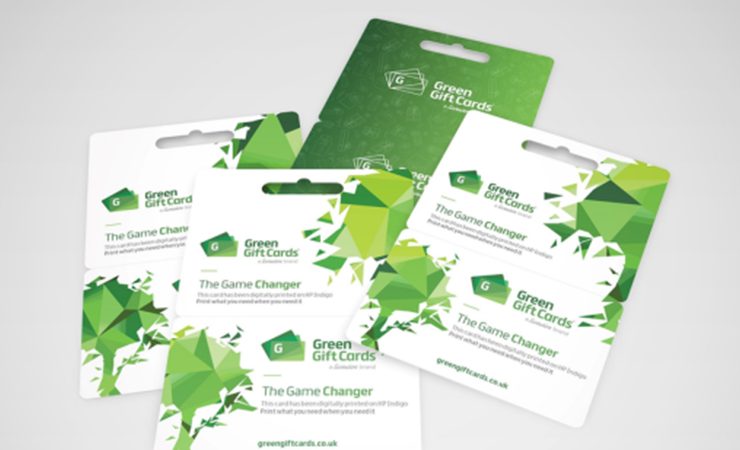HP Indigo’s 30000 sheet-fed digital press can now be used to produce gift cards on thicker paperboard following a successful collaboration between HP Indigo, Green Gift Cards, Transcend Packaging and Iggesund Paperboard.
The HP Indigo 30000 was originally designed to take substrates up to 600 microns thick. In a development project run by the four companies, that thickness has now been raised to 660 microns. This is noted as a ‘significant jump up’, taking into account the stiffness and bulkiness of Iggesund’s Invercote board that is going through the print system.
Graham Lycett, managing director at Green Gift Cards, explained, ‘Being able to print digitally on thicker materials is an important step in producing gift and other types of cards on digital presses.’
Thomas Janson, business development manager at Iggesund Paperboard, said, ‘We have actively worked to ensure our Invercote paperboard is the best option for digital printing. This project confirms that we’re on the right track.’
‘It is a huge jump,’ added Moshiko Levhar, business manager, folding cartons, HP Indigo. ‘10 percent makes all of the difference between paper-jam galore and a smooth print operation. Not to mention scratches etc. Besides, this is only half the story – media stiffness is the real issue we needed to address. Invercote is almost like plywood, very stiff and doesn’t easily bend in the system.’
Mr Lycett added, ‘This brings us far closer to the haptic – the feeing of the card in the hand – sensation of a traditional, plastic gift card in credit card size. This is important, since some companies hesitate to change from plastic to paperboard for that very reason.’
At present there is only one printing press in the world that is modified to take the higher thicknesses, which is located at Transcend Packaging. The UK printer and Mr Lycett both have a focus on reducing climate impact, with he an advocate for replacing plastic cards with paperboard ones, and Transcend Packaging renowned for high-volume production of paper-based drinking straws.
The use of HP Mosaic software for variable printing has added a further dimension to the project.
‘Not only can we vary the print from one card to the next,’ noted Mr Lycett, ‘digital printing also means we can offer reasonably priced cards in smaller print runs, while large organisations can order card volumes to fit consumption, rather than printing massive runs to get the best economy. They change to a renewable material and their orders reduce the need to keep stock, while also reducing waste and allowing scope for quick design modifications.’

